African-American documentary filmmaker Marlon Riggs was working on this final film as he died from AIDS-related complications in 1994; he addresses the camera from his hospital bed in several scenes. The film directly addresses sexism and homophobia within the black community, with snippets of misogynistic and anti-gay slurs from popular hip-hop songs juxtaposed with interviews with African-American intellectuals and political theorists, including Cornel West, bell hooks and Angela Davis.
Related Movies

Marcus Garvey: Toward Black Nationhood (1984)
A documentary, combining archival material and live interviews with Marcus Garvey, Jr., and others, which introduces the life and work of the pioneer Black nationalist leader Marcus Garvey.

The Secret of Selling the Negro (1954)
Film commissioned by the Chicago-based publisher of Negro Digest, Ebony, Tan, and Jet to encourage advertisers to reach out to African American consumers. The Secret of Selling the Negro depicts the lives, activities, and consumer behavior of African American professionals, students, and housewives. A Business Screen reviewer noted that the film focused on the “bright positive” aspects of the “new Negro family.” The sponsor issued a companion booklet offering the “do’s and don’ts of selling to the Negro.”
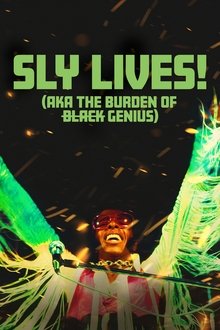
SLY LIVES! (aka The Burden of Black Genius) (2025)
An examination of the life and legacy of Sly & The Family Stone – the groundbreaking band led by the charismatic Sly Stone – that captures the band's reign while shedding light on the burden that comes with success for Black artists in America.
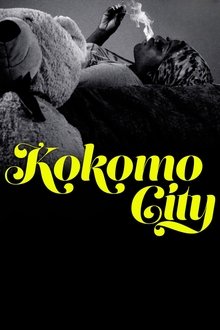
Kokomo City (2023)
Four Black transgender sex workers in Atlanta and New York City break down the walls of their profession.
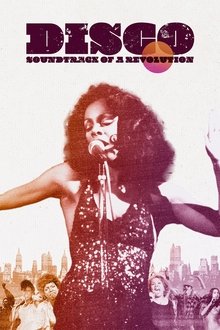
Disco: Soundtrack of a Revolution (2023)
From the sweaty basement bars of 70s New York to the glittering peak of the global charts, how disco conquered the world - its origins, its triumphs, its fall and its legacy.
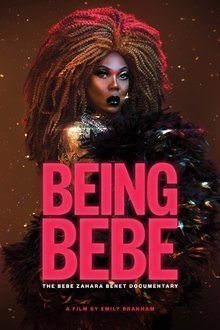
Being BeBe (2021)
The intimate journey and unpublished backstory of BeBe Zahara Benet – a charismatic drag performer originally from Cameroon, and the very first winner of the culture-changing phenomenon, RuPaul’s Drag Race. With over a decade of unprecedented access, we observe BeBe’s struggles with celebrity, authenticity, success, and failure.

Black Nations/Queer Nations? (1995)
This is an experimental documentary chronicling the March 1995 groundbreaking conference on lesbian and gay sexualities in the African diaspora. The conference brought together an array of dynamic scholars, activists and cultural workers including Essex Hemphill, Kobena Mercer, Barbara Smith, Urvashi Vaid and Jacqui Alexander to interrogate the economic, political and social situations of diasporic lesbians, gay men, bisexual and transgendered peoples. The video brings together the highlights of the conference and draws connections between popular culture and contemporary black gay media production. The participants discuss various topics: Black and queer identity, the shortcomings of Black nationalism, and homophobia in Black communities. Drawing upon works such as Isaac Julien's "The Attendant" and Jocelyn Taylor's "Bodily Functions", this documentary illuminates the importance of this historic conference for Black lesbians and gays.
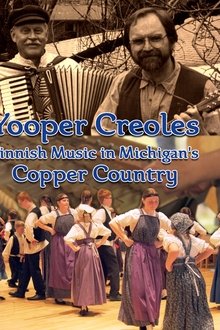
Yooper Creoles: Finnish Music in Michigan's Copper Country (2019)
When the immigrants came to America, their cultures entered the "great melting pot." In Michigan's Upper Peninsula Finnish immigrants mixed their musical traditions with many other cultures, creating a sound that was unique to the "Copper Country."
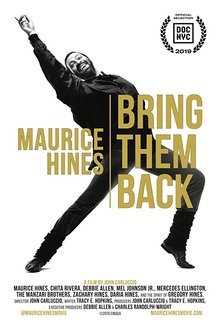
Maurice Hines: Bring Them Back (2019)
Maurice Hines -- actor, director, singer, and choreographer -- navigates the complications of show business while grieving the loss of his more famous, often estranged younger brother, tap dance legend Gregory Hines.
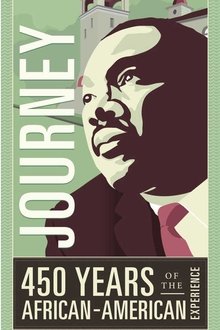
America's Untold Journey: 450 Years of the African American Experience (2016)
Chronicles over four centuries of African American influence on the development of the modern-day United States. Before Plymouth Rock and Jamestown, St. Augustine, FL had built a multicultural colony of free and enslaved men and women. This small colony would eventually set the stage for the first Underground Railroad in the late 1600s. Then, 300 years later, be the epicenter of events that would lead to the passage of the Civil Rights Act of 1964.
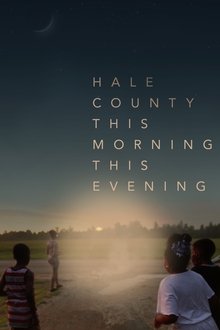
Hale County This Morning, This Evening (2018)
Composed of intimate and unencumbered moments of people in a community, this film is constructed in a form that allows the viewer an emotive impression of the Historic South - trumpeting the beauty of life and consequences of the social construction of race, while simultaneously a testament to dreaming.
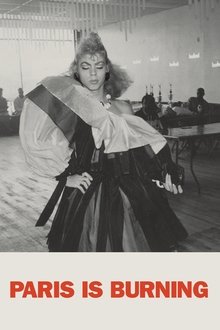
Paris Is Burning (1991)
Where does voguing come from, and what, exactly, is throwing shade? This landmark documentary provides a vibrant snapshot of the 1980s through the eyes of New York City's African American and Latinx Harlem drag-ball scene. Made over seven years, PARIS IS BURNING offers an intimate portrait of rival fashion "houses," from fierce contests for trophies to house mothers offering sustenance in a world rampant with homophobia, transphobia, racism, AIDS, and poverty. Featuring legendary voguers, drag queens, and trans women — including Willi Ninja, Pepper LaBeija, Dorian Corey, and Venus Xtravaganza.

Bittersweet (2023)
An oral history documentary of people of color at Miami University during its Public Ivy period—from 1970 to the early 2000s.
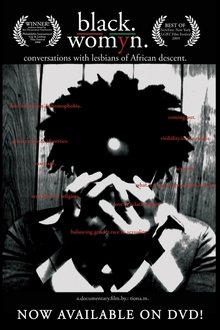
Black./Womyn.:Conversations with Lesbians of African Descent (2008)
This documentary is about the perspectives and lives of black lesbians from assorted backgrounds.
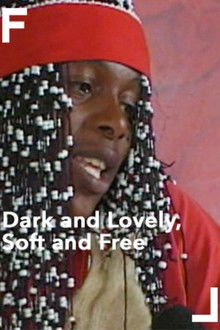
Dark and Lovely, Soft and Free (2000)
A road trip through gay spaces in small town South Africa, Graeme Reid's documentary introduces viewers to hairstylists, preachers, traditional healers, and beauty queens. This moving film provides an alternative vision of acceptance and celebration, in contrast to the wave of homophobia that is sweeping across sub-Saharan Africa.
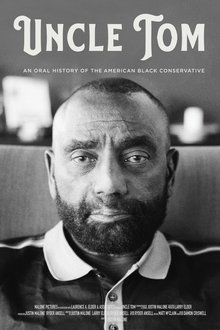
Uncle Tom (2020)
In a collection of intimate interviews with some of America's most provocative black conservative thinkers, Uncle Tom takes a different look at being black in America.
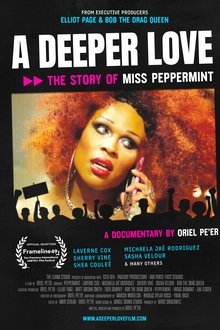
A Deeper Love: The Story of Miss Peppermint (2025)
Drag Race star Peppermint takes center stage in this up close and personal documentary about her journey with fame, identity, and the art of drag. Sharing her story alongside a close network of trans individuals, one of the world’s favorite drag performers takes you inside her rise from humble beginnings to her current reign as outspoken trailblazer for the trans community.
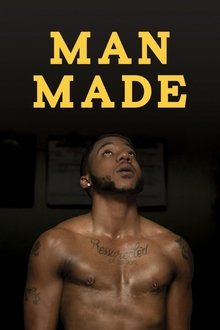
Man Made (2018)
From adoption and homelessness to navigating relationships and overcoming self-harm, the four transmen in MAN MADE all have something else in common: they are all bodybuilders. Through the lens of FTMFitCon, the world’s only FTM bodybuilding competition, we delve into the lives of Dominic, Rese, Mason, and Kennie as they define what it means to be a man while contextualizing that definition through the social, racial, and economic realities of their lives. For the men of MAN MADE, it’s not about winning—it’s about stepping on stage and being seen for everything they are.

Little White Lie (2014)
Lacey Schwartz grew up in a typical upper-middle-class Jewish household in Woodstock, NY, with loving parents and a strong sense of her Jewish identity - despite the open questions from those around her about how a white girl could have such dark skin. She believes her family's explanation that her looks were inherited from her dark-skinned Sicilian grandfather. But when her parents abruptly split, her gut starts to tell her something different. At age of 18, she finally confronts her mother and learns the truth: her biological father was not the man who raised her, but a black man named Rodney with whom her mother had had an affair.
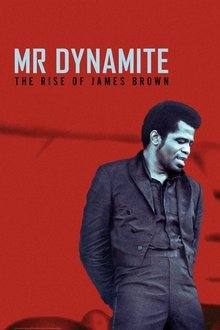
Mr. Dynamite: The Rise of James Brown (2014)
James Brown changed the face of American music forever. Abandoned by his parents at an early age, James Brown was a self-made man who became one of the most influential artists of the 20th century, not just through his music, but also as a social activist. Charting his journey from rhythm and blues to funk, MR. DYNAMITE: THE RISE OF JAMES BROWN features rare and previously unseen footage, photographs and interviews, chronicling the musical ascension of “the hardest working man in show business,” from his first hit, “Please, Please, Please,” in 1956, to his iconic performances at the Apollo Theater, the T.A.M.I. Show, the Paris Olympia and more.